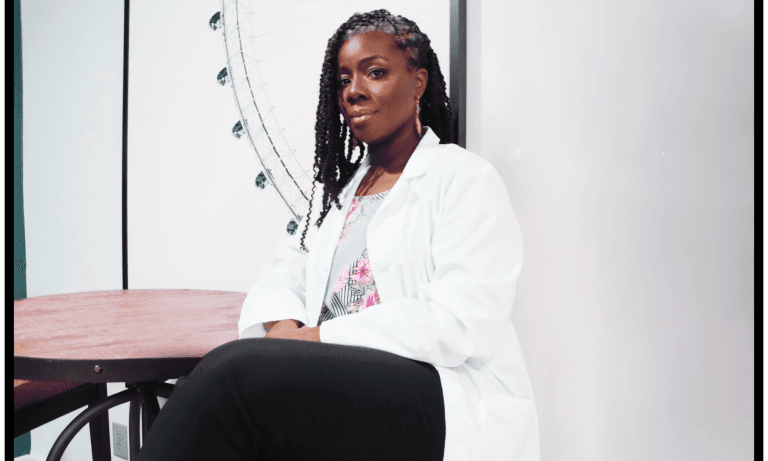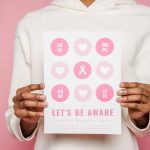To tell this story honestly, we have to go back — all the way to my college days, over 20 years ago. (Wow, just saying that makes me feel seasoned!) Long before I earned my white coat, I worked as a certified nursing assistant in high school and continued all the way through medical school. Those early years gave me something books couldn’t — perspective, grit, and a love for healing.
At first, I considered becoming a registered nurse or a physician assistant. But deep down, I knew that to create the kind of impact I envisioned — to truly change lives — I needed to become a doctor. My path was clear before I even stepped on campus.
History Tried to Repeat Itself
I’ll never forget the wisdom my mother passed down. As a Black woman pursuing her BSN, she was misled by her academic advisor — enrolled in irrelevant courses that delayed her graduation for years. Eventually, she took matters into her own hands, reviewed the course catalog herself, and handpicked the classes she needed. That moment shaped her — and it shaped me.
So, when I met with my college advisor and said, “I want to major in chemistry and go to medical school,” I was ready. But instead of support, I got dismissal.
“You’re dreaming,” she said. “You should rethink your career path.”
No rationale. No encouragement. And just like with my mother, I found myself being registered for courses that had absolutely nothing to do with my major. It was déjà vu — the same pattern, the same erasure — and I knew what I had to do. I got the catalog, built my own schedule, and kept it moving.
When Bias Wears a White Coat
Medical school was a beautiful time for me. I learned so much and found my rhythm as a future physician. But residency — well, residency was another beast entirely.
During orientation, I was confronted by a senior who made it his mission to break me before I even got started. Picture a police interrogation scene — that’s what it felt like.
“You don’t belong here,” he said. “You’ll never make it.”
He told me I wasn’t cut out to be a doctor — without ever seeing me care for a single patient.
That wasn’t a critique of my skill. That was racism — masked as “gut instinct.”
But truthfully, the bias didn’t start there. I remember a moment during clinical rotations in medical school when I was pulled aside and told I looked “unkempt.” I was wearing a professional pantsuit, flats, a blouse, and my white coat— and yet, I was still told I looked ‘unkempt.’ The only difference that day? I wore my hair in a neatly styled afro. That moment made it crystal clear: no matter how polished I appeared, my natural Blackness—especially my hair—was seen as inherently unprofessional in their eyes. It was a devastating realization that left a lasting imprint.
Being a Black woman doctor means constantly walking a tightrope—overperforming to be taken seriously, yet shrinking yourself to avoid threatening others. You’re expected to dress the part, speak the part, act the part—but even when you do, it often isn’t enough.
These are the quiet violations—dismissals that wound, pile up, and are rarely acknowledged. The bias is often coded, but the damage is real.
Carrying the Weight of Expectations — and Bias
As I moved through training and into practice, I noticed a pattern: the higher I climbed, the more uncomfortable some people became. There’s something unsettling for certain individuals about a Black woman in a white coat who knows her stuff.
When intimidation fails, they try to chip away at your confidence. And if that doesn’t work, they go after your credentials — manufacturing complaints, questioning your decisions, and trying to wear you down.
Sadly, my story isn’t an isolated one.
Black women make up just 2.8% of all physicians in the U.S., despite Black Americans representing over 13% of the population. That number speaks volumes (AAMC, 2019).
And it’s not just representation. Studies show that Black women physicians face some of the highest levels of gendered racism and workplace discrimination in healthcare (PubMed, 2022), (PubMed, 2023).
Meanwhile, patients suffer too — Black women report being 21% more likely to experience unfair treatment in healthcare settings (KFF, 2024).
Why I Keep Showing Up
These experiences — and I’ve only shared a handful — have grounded me in one undeniable truth: I belong in medicine. I am not here by accident, nor am I someone’s diversity hire. I worked for this. I sacrificed for this. I continue to show up because I know my presence matters — not just for me, but for every young Black girl who dreams of becoming a doctor.
I hope to see more Black physicians and more people of color in healthcare overall. And I want to be part of that change — not just as a physician, but as an example, a guide, and a face that says: You belong too.
Sources:
- AAMC. (2019). “Diversity in Medicine: Facts and Figures 2019.” https://www.aamc.org/data-reports/workforce/report/diversity-medicine-facts-and-figures-2019.
- PubMed. (2022). “Experiences of race- and gender-based discrimination among Black female physicians.” https://pubmed.ncbi.nlm.nih.gov/35058066/.
- PubMed. (2023). “Superhuman, but never enough: Black women in medicine.” https://pmc.ncbi.nlm.nih.gov/articles/PMC9908326/.
- KFF. (2024). “Five Facts About Black Women’s Experiences in Health Care.” https://www.kff.org/racial-equity-and-health-policy/issue-brief/five-facts-about-black-womens-experiences-in-health-care/.


